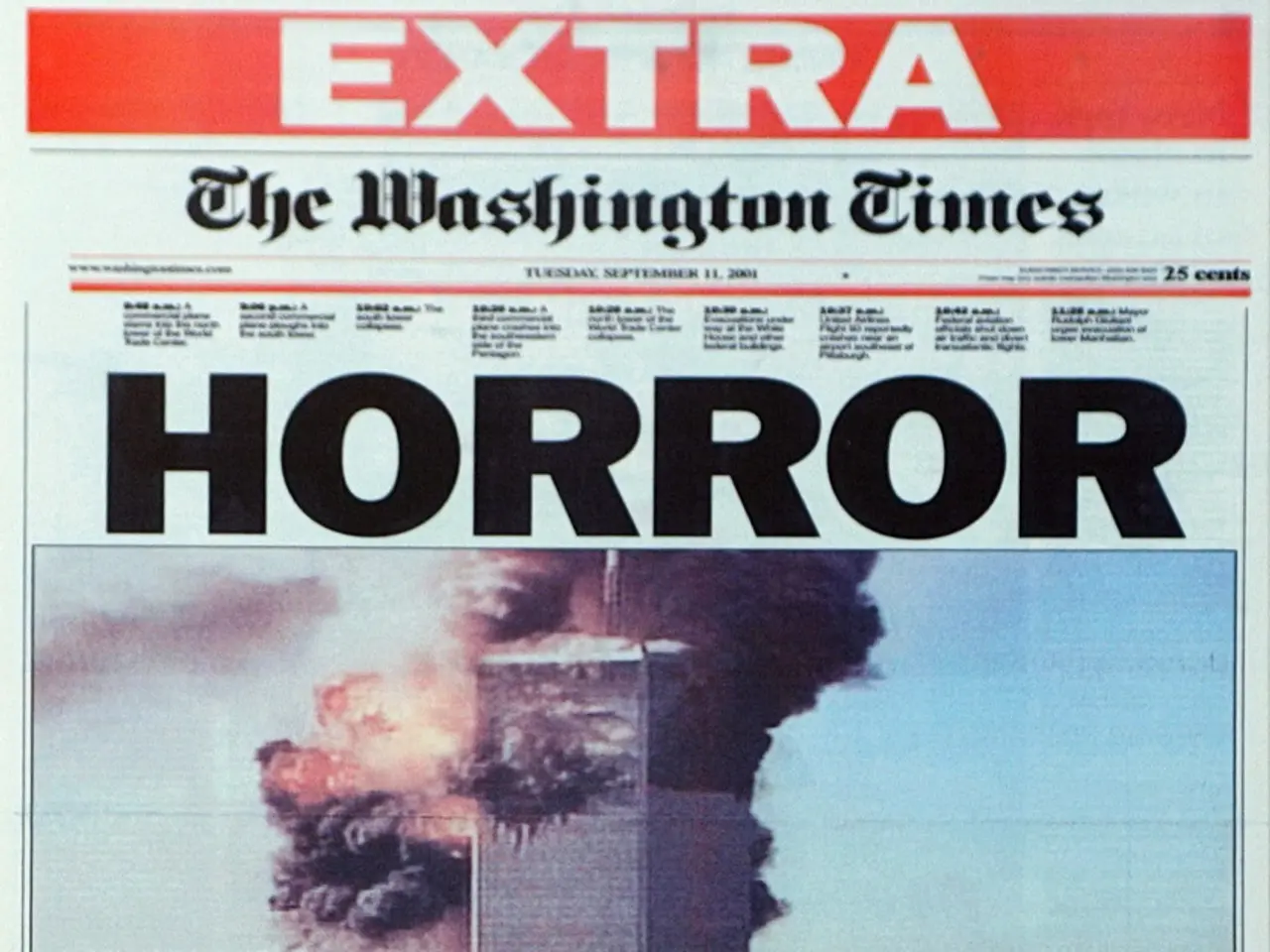Diplomatic reconciliation between Russia and the U.S. is "beneficial," as stated by Laschet.
As diplomatic efforts between US President Donald Trump and Russian President Vladimir Putin unfold in Alaska, European leaders are actively shaping their own strategy to resolve the ongoing Ukraine conflict.
German politician Armin Laschet, chairman of the Foreign Affairs Committee in the Bundestag, expressed approval of the negotiations, acknowledging the need for dialogue. However, he emphasized the importance of not recognizing an annexation de jure under international law.
Meanwhile, Russian Foreign Minister Sergei Lavrov spoke with his counterparts from Turkey and Hungary by phone, suggesting a potential multi-lateral approach to the conflict.
In Ukraine, President Volodymyr Zelensky reported smaller gains in the east of the country after a meeting with army chief Olexander Syrsky. The Ukrainian President also informed his U.S. counterpart, Donald Trump, that Kyiv rejects a demand by Kremlin chief Vladimir Putin to cede the not yet occupied territories of the Donetsk Oblast to Russia.
Russian forces are reported to have made advances in several regions, taking the settlement of Selenyj Haj in the Kharkiv region and making progress near Lozova in the Kharkiv region and near Popovo Yar in the Donetsk region. These actions have resulted in a Ukrainian drone attack in the Russian region of Voronezh, injuring an employee of the railway and damaging a power line.
The European Union is pursuing a comprehensive strategy to counter Russian aggression. This strategy includes ongoing military and humanitarian aid, assertive diplomacy, and long-term security guarantees. The EU has mobilized significant funds, updated military capacities, and proposed strategic regional initiatives like the Black Sea strategy to counter Russian influence.
Proposed security guarantees include deploying Western forces (especially German troops) in symbolic but deterrent roles away from front lines, patrolling airspace from neighboring NATO countries, and enhancing training and support for the Ukrainian military. The EU acknowledges, however, that its security guarantee capabilities are limited without US military support.
European supporters of Ukraine will discuss their further steps in a video conference today. The leader of the Union parliamentary group, Jens Spahn, sees his CDU party colleague Friedrich Merz as a driving force in Europe in efforts to achieve a peaceful solution for Ukraine.
Chancellor Friedrich Merz mildly criticized the staging of the Alaska summit by US President Donald Trump, which elevated Russian President Vladimir Putin. EU chief diplomat Kaja Kallas emphasized an uncompromising stance towards Russia and criticized Putin for dragging out negotiations and hoping to get away with it.
Armin Laschet believes that there is some momentum in diplomacy between the US and Russia, viewing the understanding between the two leaders as "signals for relaxation." This diplomatic progress, however, does not diminish the need for Europe to maintain its independent strategy and to seek stronger EU-US coordination for credible and effective security guarantees.
[1] European Council. (2021). Joint Statement on the EU-Ukraine Association Council. [2] European External Action Service. (2021). EU-Ukraine Association Council Joint Statement. [3] European Commission. (2021). EU adopts new Black Sea Strategy. [4] NATO. (2021). NATO supports Ukraine's sovereignty and territorial integrity.
- The ongoing Ukraine conflict, significantly influenced by policy-and-legislation and politics, has prompted European leaders to draft a comprehensive community policy aimed at countering Russian aggression, which includes assertive diplomacy, military and humanitarian aid, and long-term security guarantees.
- Against the backdrop of war-and-conflicts and general-news, European Council statements endorse efforts towards a peaceful resolution in Ukraine, emphasizing the importance of maintaining independent policies and seeking stronger EU-US coordination for credible and effective employment policies.






